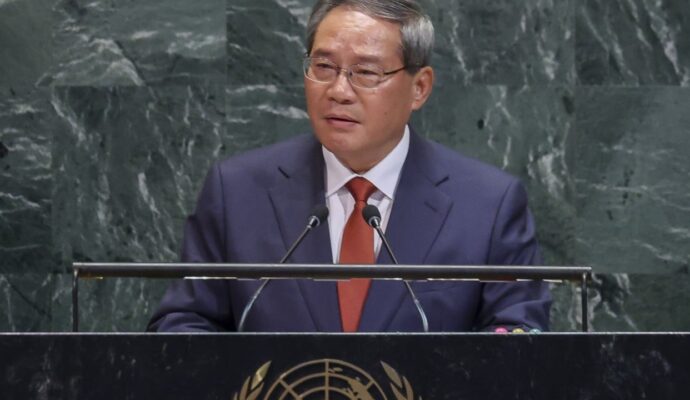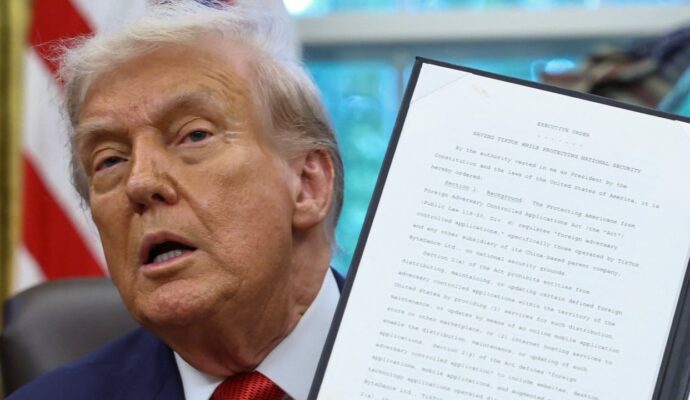Armed groups have launched a series of attacks since Friday across the northern provincial administrations of Shan State, Kachin State, and the upper Sagaing Region.
China’s border runs for 2,000km (1,250 miles) along the Shan and Kachin states, with at least 10 cross-border ports in operation in Yunnan province.
Authorities in the city of Ruili said the fighting had forced three schools in the township of Wanding on the Shan border to suspend classes from Monday.
A school statement posted online also warned students and teachers to actively “seek shelter when hearing gunfire” to avoid “being wounded by stray bullets”.
The four major militant groups – the Kachin Independence Army, the Ta’ang National Liberation Army (TNLA), the Arakan Army, and the Myanmar National Democratic Alliance Army (MNDAA) – have reportedly seized several military posts and key roads in the region.
The TNLA and the MNDAA said they had seized several key roads to China and numerous junta camps.
According to the United Nations, several hundred people have reportedly crossed the border into China to escape the fighting and more than 6,200 people have been newly displaced in northern Myanmar.
Li Feng, an associate professor of the Academy of China-Asean International and Regional Studies at Guangxi Minzu University, said the conflict was clearly having an impact on the social stability in Yunnan’s border areas.
“The continued conflict has had a significant negative impact on the trade and people-to-people communication between China and Myanmar, which is not in line with the common interests of the two countries,” Li said.
Li said that to prepare for potential general elections, the junta in Myanmar was trying to show the domestic and international communities that it was in control, but it had not been able to resolve its conflict with de facto independence forces in the north.
China has called for dialogue and a ceasefire to avoid an escalation.
Amid the turmoil, China and Myanmar are strengthening joint security efforts, even though China has not officially recognised the junta.
In a meeting with government chief Senior General Min Aung Hlaing in Naypyidaw on Tuesday, Chinese Public Security Minister Wang Xiaohong said Beijing would deepen law enforcement and security cooperation.
“The law enforcement and security departments of the two countries will strengthen cooperation in areas such as combating online gambling and terrorism, and promoting drug control, law enforcement in the Mekong River Basin, and the security of major projects to safeguard the … interests of both countries,” Wang said.
Diplomats from Beijing and Naypyidaw gathered in August to discuss maintaining a stable border and safeguarding peace in frontier areas. Later on, China’s public security forces accepted a mass of suspects in Myanmar related to the cyber scams by cross-border security cooperation.
Former foreign minister Qin Gang also visited Myanmar in March.




